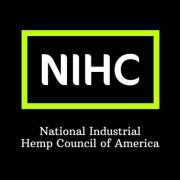
It is all about being in the right state at the right time.
 New West Genetics is in the business of providing farmers with high quality hemp seed produced for grain, cannabinoids, and fiber since the opportunity opened in 2014 in the state of Colorado, the first to open its marketplace. Each variety has its own unique genetic profile in order to create a quality product. Each is backed by 7 years of industry research and development (a lifetime in this industry), plus over 20+ years each of Ag experience from the founding partners, Wendy Mosher, president/CEO, Dr. John McKay, Chief Scientific Officer (as well as Professor of Plant Evolutionary Genomics at Colorado State University) and Dr. Rich Fletcher, chief technology officer and director of breeding.
New West Genetics is in the business of providing farmers with high quality hemp seed produced for grain, cannabinoids, and fiber since the opportunity opened in 2014 in the state of Colorado, the first to open its marketplace. Each variety has its own unique genetic profile in order to create a quality product. Each is backed by 7 years of industry research and development (a lifetime in this industry), plus over 20+ years each of Ag experience from the founding partners, Wendy Mosher, president/CEO, Dr. John McKay, Chief Scientific Officer (as well as Professor of Plant Evolutionary Genomics at Colorado State University) and Dr. Rich Fletcher, chief technology officer and director of breeding.
Yet, you might say that New West Genetics is as much of a technology company as it is an agricultural one. NWG uses genomic technology and data-driven discovery to create large-scale, harvestable hemp, greatly enhancing the sustainability of the industry and paving the way for large-scale product development.
NIHC caught up with Wendy Mosher to discuss her company, the industry and her thoughts on the work of NIHC.
I want the U.S. to be the leader of all things hemp. We have pushed this industry farther than any other country. We need to maintain that edge. We have got to keep pushing.
Tell us about your early-adaptor status to the hemp industry.
In 2014, we saw the opportunity unfolding. Because of my partners’ experience in breeding and genetics, we knew what needed to be done and how long it takes. Colorado’s Amendment 64 mandated the state create a regulatory system for hemp, then the 2014 Farm Bill allowed R&D on hemp, which created the opportunity to launch New West Genetics.
We were attracted to hemp for all the reasons everyone else is, but we knew the plant needed tons of improvements, and still is evolving, which is exciting to us.
Our company believes in in multipurpose varieties, we license to larger CPG or processing companies, as well as sell seed direct to the farmers. We work closely with farmers and processors to make a positive impact for both.
As an early adopter, we like to think we have a premiere advantage, we had a head start. Breeding quality genetics takes time, the more cycles you select within, the more stable and reliable your variety becomes. Our product is not a strain, we produce varieties.
What value do you see in being a member of NIHC (and what inspired you to join)?
I appreciate their history and experience on Capitol Hill and in agriculture. There’s no other hemp industry organization today that has more experience within the regulatory side with the USDA and other agencies. They have filled a critical hole in the industry.
We were an original member of the organization, speaking a lot with chair Patrick Atagi as he was developing the NIHC mission. We saw the value in the working experience the Council has within regulatory bodies. From our experience, we understand that just knowing how all these federal organizations work is, in itself, a huge hurdle, which NIHC brings to the industry.
From our perspective, we have witnessed the collapse of pricing, the arrival at commodity like dynamics, which laid the burden primarily on the farmer. They bore the brunt of the CBD crash and other dips in the development of the marketplace. In my opinion, I want to see the industry come together to equally share some of that burden of a nascent industry by talking with transparency around the supply chain, with all the players, including processors, contributing to building the industry we all know has so much potential. That comes with building relationships and finding levels of trust that have been lacking in our history.
What value and services does your company bring to the industrial hemp industry?
 Quite simply, New West Genetics creates certified U.S. adapted hemp varieties tailored to various market traits.
Quite simply, New West Genetics creates certified U.S. adapted hemp varieties tailored to various market traits.
On a more complex note, we also provide the agronomic knowledge we’ve gained over the last 7 years in hemp and over many more years from other crops – we support our customers on the agronomic level to ensure their best opportunity for success. We ask about their planting time, talk about what equipment they have, what plate for planting drill they use, row spacing expectations, and help them with inputs. We also visit our farm clients at least once a season in addition to video calls. We have learned a lot having seven years of planting and research (in the greenhouse in winter and on acreage in summer) working with the individual needs and harvest expectations of the farmers and pass that knowledge back to the farmers.
From your perspective, what is the most important aspect concerning the industrial hemp industry today?
Without a doubt, market and supply chain development for grain and fiber, and regulatory movement.
The full potential of industrial hemp is yet to be realized because it is still new. There is a lot of opportunity to utilize protein and lipids, but we are all still learning. It is clear that the consumer wants this. I believe we are at a tipping point. They want it on the shelf, whether they are educated about it or it is just trendy is another discussion. Either way a strong and growing demand is clearly evident.
I have more seed than there are growers for it for the marketplace. There are two main issues concerning the industry right now from our perspective.
- Regulations stifling the industry is ultimately the largest constraining issue. Larger companies who are positioned in the market, and new players waiting to large investments to the table, want to see the regulatory pathway clear. Ultimately, the FDA needs to approve grain across animal species and at the very least sanction the use of CBD as a dietary supplement.
- Relatedly, the supply chain needs work – once that regulatory piece opens up, we as an industry need to be ready to scale. We have taken care of the genetics piece, now we need to see logistics, elevators, seed conditioners, scaled fiber processing, grain ingredient advancements, etc. Such an exciting time, every single one of these is being worked on, we just need to be sure we’re all staying in touch and collaborate on needs and progress, so we can create strong relationships that will be ready to serve these larger CPG companies.
Let me be clear, I want the U.S. to be the leader of all things hemp. We have pushed this industry farther than any other country. We need to maintain that edge. We have got to keep pushing. Other international players are already making strides quickly, and if we don’t move expediently, we could lose our edge.
How is your organization helping to move the industrial hemp industry forward?
 New West Genetics is working hard to lay a strong foundation for the industry – by providing the first link in the supply chain – stable genetics. In addition, our R&D team has been cultivating for multiple seasons a year for 7 years, thus have one of the strongest agronomic understandings, which we are happy to share with producers.
New West Genetics is working hard to lay a strong foundation for the industry – by providing the first link in the supply chain – stable genetics. In addition, our R&D team has been cultivating for multiple seasons a year for 7 years, thus have one of the strongest agronomic understandings, which we are happy to share with producers.
We also spend countless hours shoring up the supply chain side, including downstream market developments. Much of my time is devoted to this – famers need a place to take their crops – but the market is still nascent, as I stated earlier. So, it is essential we spend time educating medium and larger CPG and processing companies on the value of hemp, both for its nutrition and sustainability. There is no other crop that can compete on both of those fronts.
Your website states “We are transforming the hemp industry by creating the most reliable, premium, proprietary hemp seed that reduces risk, increases yield, and enables sustainable large-scale production.” How you are accomplishing this?
We accomplish this by applying our expertise in agriculture and our dedication to data-based claims – we boast the largest, most accomplished team in genetics and agribusiness – over 150 years of experience bringing new crops to market.
To see more about New West Genetics, visit https://newwestgenetics.com/meet-the-team/
Check out the video from NWG’s last harvest festival:
https://www.youtube.com/watch?v=pzu2-Mc-Uyo&feature=emb_logo







 Herrick (“Rick”) Fox has been a member of the NIHC since its inception and serves as co-chair of the NIHC Government Relations committee (GAC), with good reason. As owner of Meristem Farms, located in Vermont, he has an interest in securing a sound policy and regulatory foundation for hemp farms of all shapes and sizes, including smaller and independent farms like his, and he also has 15 years of policy, regulatory and management experience in USDA.
Herrick (“Rick”) Fox has been a member of the NIHC since its inception and serves as co-chair of the NIHC Government Relations committee (GAC), with good reason. As owner of Meristem Farms, located in Vermont, he has an interest in securing a sound policy and regulatory foundation for hemp farms of all shapes and sizes, including smaller and independent farms like his, and he also has 15 years of policy, regulatory and management experience in USDA.

 NIHC continues our work to serve as a credible resource to government officials in developing sound, common-sense regulations of America’s hemp economy. As part of those efforts, we have continued to engage the U.S. Senate Committee on Agriculture on a range of issues that have the potential to be included in 2023 farm bill development and negotiations anticipated to begin as early as this fall.
NIHC continues our work to serve as a credible resource to government officials in developing sound, common-sense regulations of America’s hemp economy. As part of those efforts, we have continued to engage the U.S. Senate Committee on Agriculture on a range of issues that have the potential to be included in 2023 farm bill development and negotiations anticipated to begin as early as this fall.











